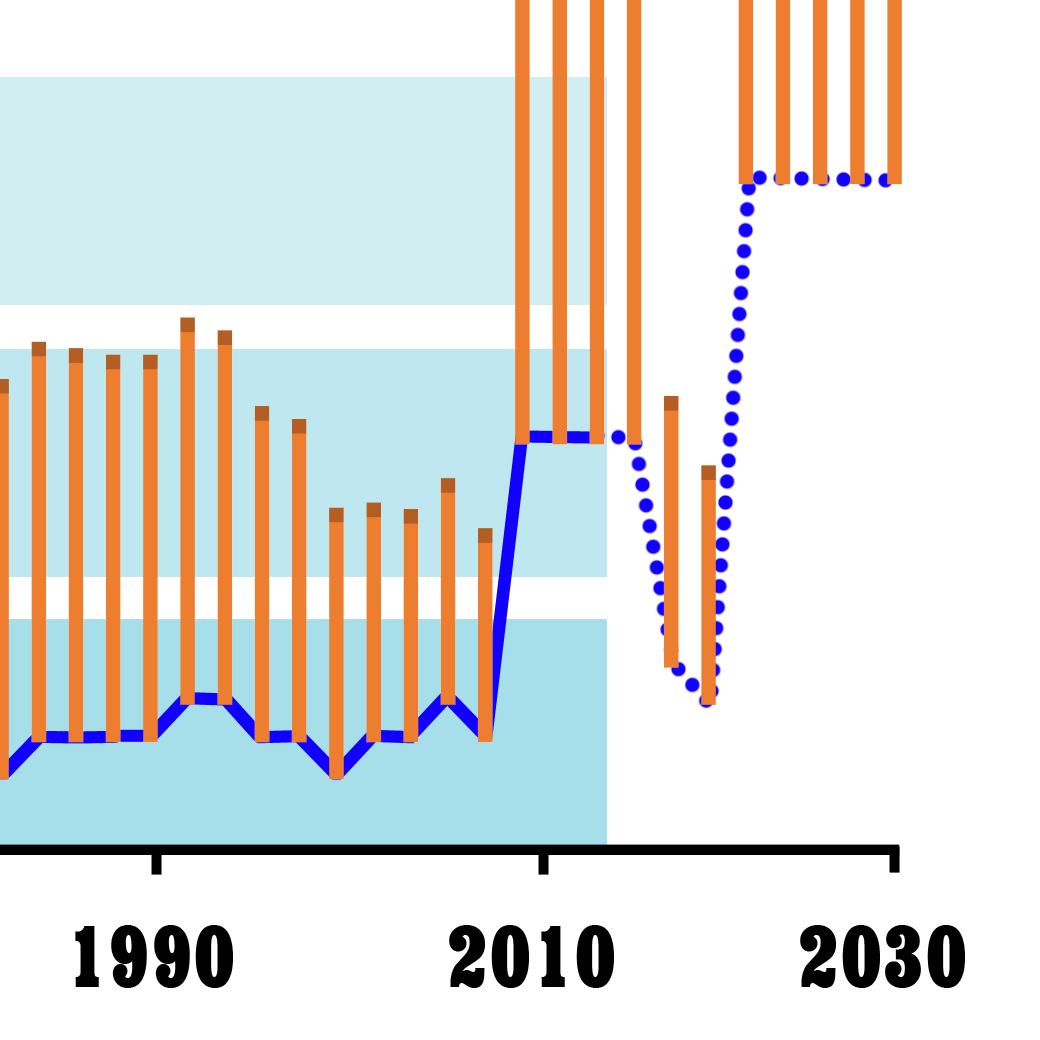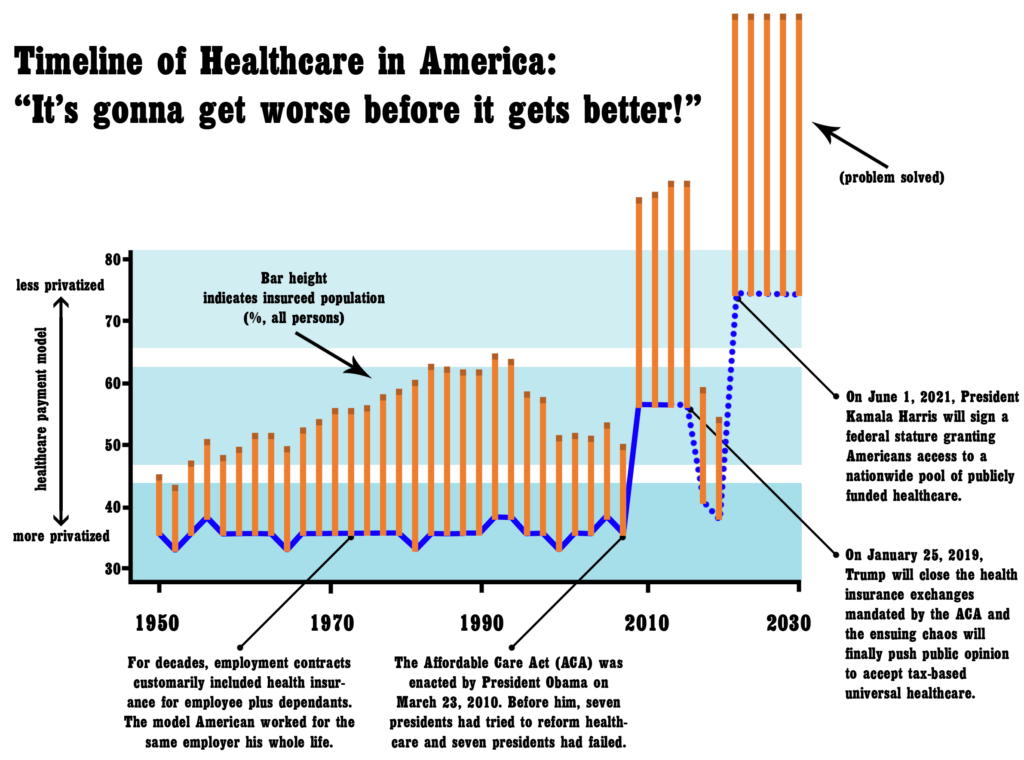ABSTRACT
Our data analytics department has worked tirelessly to develop a probabilistic model for the future of American healthcare. We can now clearly see that in early 2019, President Trump will dissolve the health insurance exchanges set up by the Affordable Care Act. Public opinion will turn against Republican party[1] and overturn previously held convictions[2].
In 2021, President Kamala Harris will implement a tax-funded single-payer healthcare system. If you look closely, you can already see a lot of American civilians realizing that healthcare does not have to be complicated:
[twitter_video id=”829884141046996998″]
[1] They argue as if there is some unexplored right-wing experiment that will suddenly lower prices and cover everyone. They say that the system should have ‘more options for customers’ and ‘more competition’, as if this is not merely a step back to the fully privatized system in place before the Affordable Care Act. The truth is that all healthcare systems can be plotted along a continuum of private versus public.
[2] For decades, all Americans have believed that universal healthcare in America is unrealistic. According to mainstream American mythology, universal healthcare in Canada and the United Kingdom is financially feasible only because those countries exist in specific historical circumstances not shared by the United States. Whenever asked about universal healthcare, Bill O’Reilly will scream the same response: “Denmark is a tiny country!”


One reply on “Everything You Need To Know About the Future of American Healthcare in One Simple Graph”
[…] In accordance with our previous forecast, Republican lawmakers will force the Trump-Ryan alliance do a full repeal and thereby shut down the government-run health insurance exchanges. Only one man can stand in their way: The Parliamentarian. […]